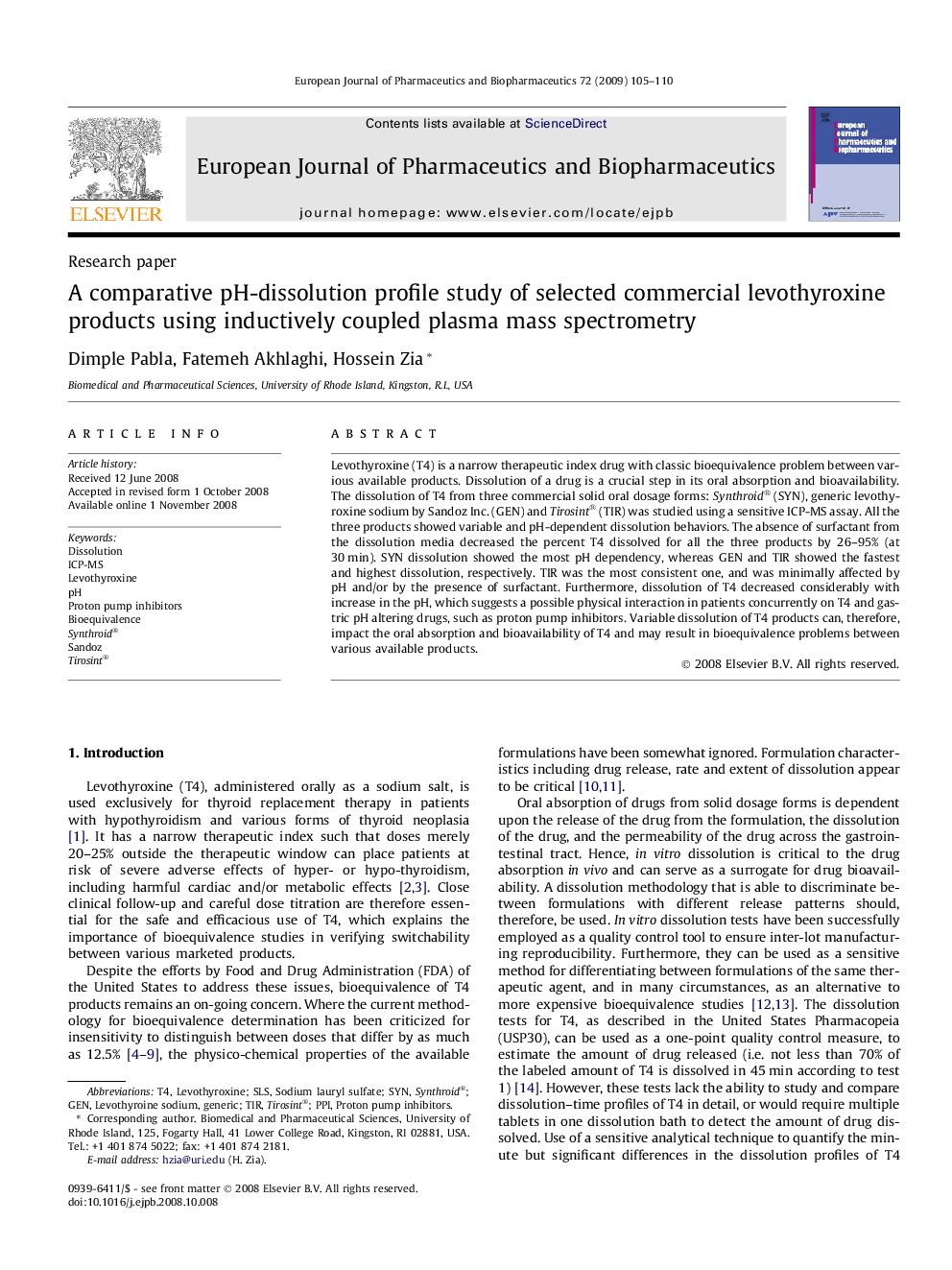| Article ID | Journal | Published Year | Pages | File Type |
|---|---|---|---|---|
| 2084349 | European Journal of Pharmaceutics and Biopharmaceutics | 2009 | 6 Pages |
Levothyroxine (T4) is a narrow therapeutic index drug with classic bioequivalence problem between various available products. Dissolution of a drug is a crucial step in its oral absorption and bioavailability. The dissolution of T4 from three commercial solid oral dosage forms: Synthroid® (SYN), generic levothyroxine sodium by Sandoz Inc. (GEN) and Tirosint® (TIR) was studied using a sensitive ICP-MS assay. All the three products showed variable and pH-dependent dissolution behaviors. The absence of surfactant from the dissolution media decreased the percent T4 dissolved for all the three products by 26–95% (at 30 min). SYN dissolution showed the most pH dependency, whereas GEN and TIR showed the fastest and highest dissolution, respectively. TIR was the most consistent one, and was minimally affected by pH and/or by the presence of surfactant. Furthermore, dissolution of T4 decreased considerably with increase in the pH, which suggests a possible physical interaction in patients concurrently on T4 and gastric pH altering drugs, such as proton pump inhibitors. Variable dissolution of T4 products can, therefore, impact the oral absorption and bioavailability of T4 and may result in bioequivalence problems between various available products.
